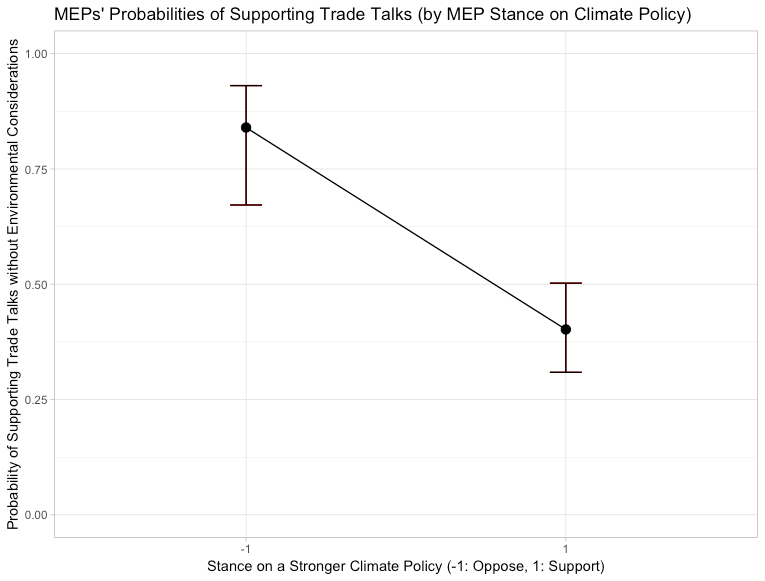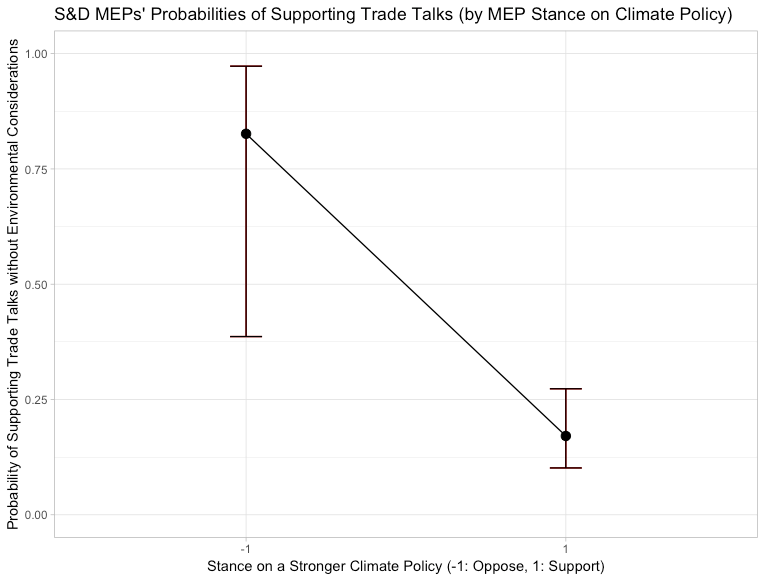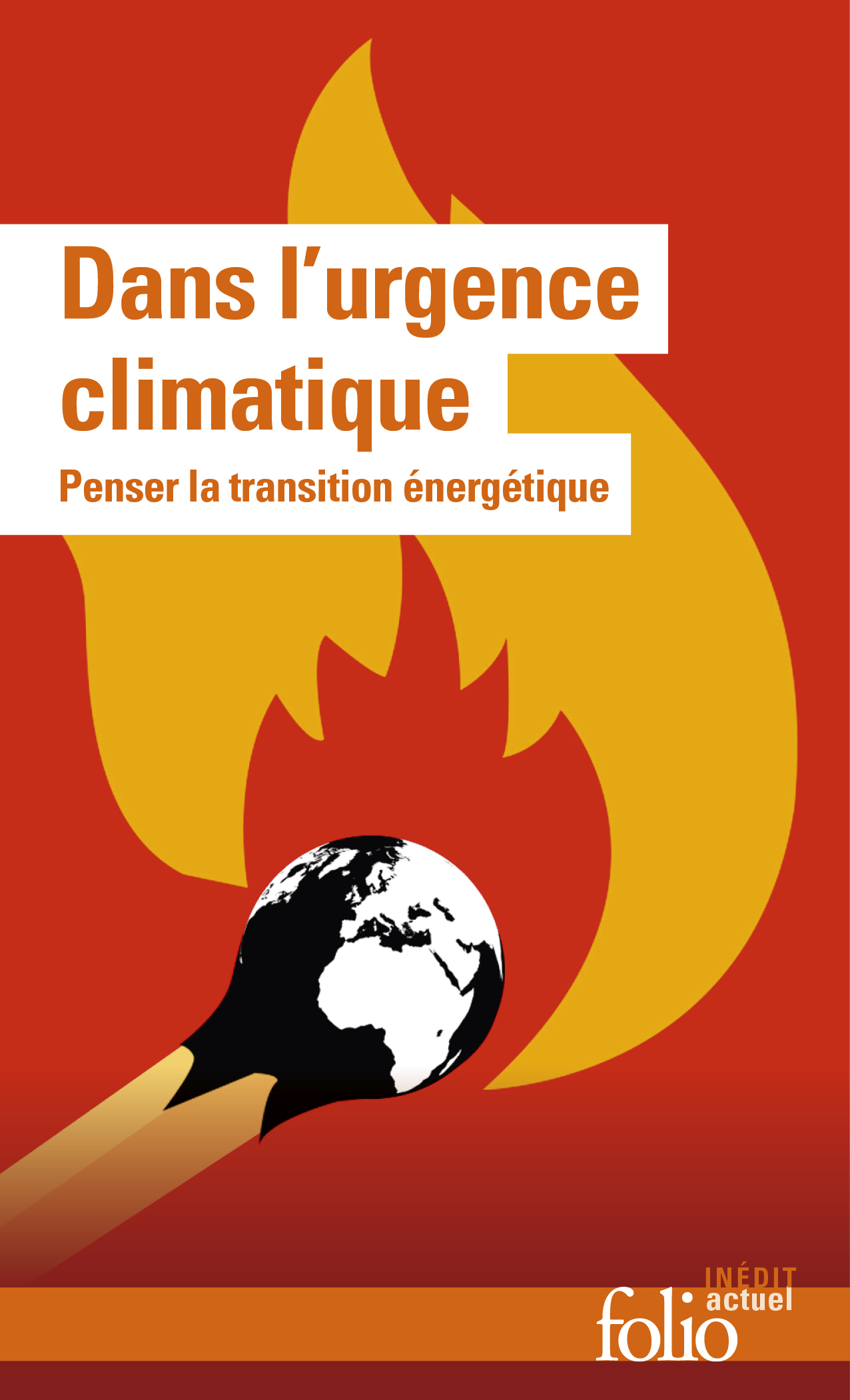Blog Post
Does attaching environmental issues to trade agreements boost support for trade liberalisation?
This blog post shows that the omission of environmental issues in the new EU-US trade negotiations may make it challenging to pass the trade agreement in the European Parliament. In particular, the inclusion of environmental issues is pivotal to keep the second largest, centre-left S&D group in the pro-trade coalition.
On April 15th, the European Council authorised mandates for the Commission to open trade negotiations with the United States. Compared to the now-defunct Transatlantic Trade and Investment Partnership (TTIP), the mandates for the new trade talks are limited in scope. Most notably, while the negotiating mandates on the TTIP emphasised trade’s impact on environmental protection, the new mandates do not require negotiating explicit wording on environmental issues.
The omission of environmental issues in the mandates caused political challenges in the European Parliament and European Council. On March 14th, the resolution for negotiations with the US was defeated in the Parliament. All the amendments proposed by the EFDD, ENF, Greens/EFA, GUE/NGL, S&D parliamentary groups called for the inclusion of environmental issues. In the Council, France remains opposed to “any negotiations with countries outside the Paris Climate Agreement”.
This blog post argues that the omission of environmental issues may have negative effects on ratification of the new trade deal in the European Parliament. Since the Lisbon Treaty, the Parliament’s consent has been a prerequisite for ratification of trade agreements. As shown in the Parliament’s rejection of the Anti-Counterfeiting Trade Agreement in 2012, the institution plays an important role as a potential veto-player in trade liberalisation. As such, it is important to understand the Parliament’s calculus about trade agreements, in order to avoid ratification failure.
Analysis
To better understand the political effect of excluding environmental issues in the trade negotiations, I analysed the individual MEPs’ votes on March 14th on the US-EU negotiations. In particular, I estimate whether MEPs changed their votes on the new trade talks compared to their votes on the recommendations on the negotiations for the TTIP in 2015. In this analysis, I test whether the MEPs who recently supported a resolution in support of the Paris Climate Agreement withdrew their support for the new trade deal due to the omission of climate considerations in the mandates.[1]
My analysis suggests that pro-climate MEPs opposed the new negotiations with the US more strongly than those indifferent about climate policies. All else equal, if a MEP is not supportive of a stronger climate policy, the MEP is predicted to support the trade talks without environmental mandates, with a likelihood of 83%. However, the predicted probability of approval drops to 40% if the MEP supports a stronger climate policy in line with the Paris Agreement (See Figure 1).
Importantly, the effect of leaving out environmental issues is most pronounced with respect to the MEPs in the centre-left S&D group. As Figure 2 shows, an S&D MEP who opposed the Paris climate resolution is predicted to be 83% likely to support the current trade talks without environmental considerations, whereas the probability drops to only 17% for a pro-climate S&D member.[2]
The results make sense, considering the current landscape in the Parliament. Other political groups such as the EPP (pro-trade) and the Greens/EFA (anti-trade) have clear stances on trade liberalisation independent of trade’s impact on climate change. By contrast, for the centre-left MEPs in the S&D group, climate issue linkages are an important consideration in deciding their positions on trade liberalisation. Because the pro-trade groups (EPP and ALDE) will need the second largest S&D group’s support to form a majority coalition for trade liberalisation, the S&D’s considerations will prove pivotal in salvaging the trade deal in the Parliament.
Predictions
Does this matter? Critics may argue that the current parliament’s disapproval is less relevant, because a new parliament will be in place for ratification of the new trade agreement.
That said, there are two potential pathways by which the lack of a stable majority coalition on the US negotiations can negatively affect ratification in the Parliament in future. First, the Parliament’s influence tends to increase when the Council is internally divided. Currently, member countries are divided on the trade talks: France is opposed to a deal without climate linkages, whereas Germany needs the agreement due to its auto industry. As such, pro-environmental factions in the new parliament may emerge as an important veto-player if the French opposition remains unmoved.
Second, a recent election forecast suggests that the centrist parties will maintain their dominance while the extremist parties will expand their influence. This introduces higher policy uncertainty in forming a pro-trade coalition within the Parliament. Substantively, the new majority coalition may have to incur more concessions – such as the inclusion of climate and labour issues – to keep the support for the trade agreement from the centre-left S&D, because losing even a few centrist votes may lead to ratification failure.
Figure 1. Predicted Probabilities for MEPs’ Support of the US Trade Talks without Environmental Linkages, Conditional on their Stances on Climate Issues

Figure 2. Predicted Probabilities for S&D MEPs’ Support of the US Trade Talks without Environmental Linkages, Conditional on their Stances on Climate Issues (S&D only)

[1] See the data and replication materials here. I conduct logistic regression analyses to estimate MEPs’ probability of supporting the talks with the US in 2019. I include “MEPs’ votes on the climate resolution 2019” as the main explanatory variable. As controls, I include “the MEPs’ votes on the TTIP in 2015”, “agriculture, forestry, and fishing value added (% of GDP)” of the MEPs’ home countries, “High technology exports (% of total manufactured exports)” of the MEPs’ home countries, and the stance on trade held by the political parties of individual MEPs.
[2] The results reported in this paragraph are based on a model in which I control for each political group’s idiosyncratic stance on trade liberalisation and environmental protection using a political group fixed effect.
Republishing and referencing
Bruegel considers itself a public good and takes no institutional standpoint. Anyone is free to republish and/or quote this post without prior consent. Please provide a full reference, clearly stating Bruegel and the relevant author as the source, and include a prominent hyperlink to the original post.











